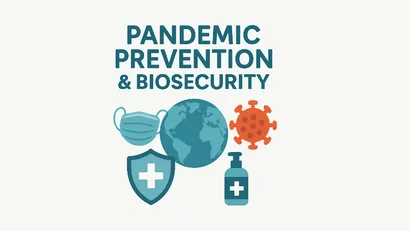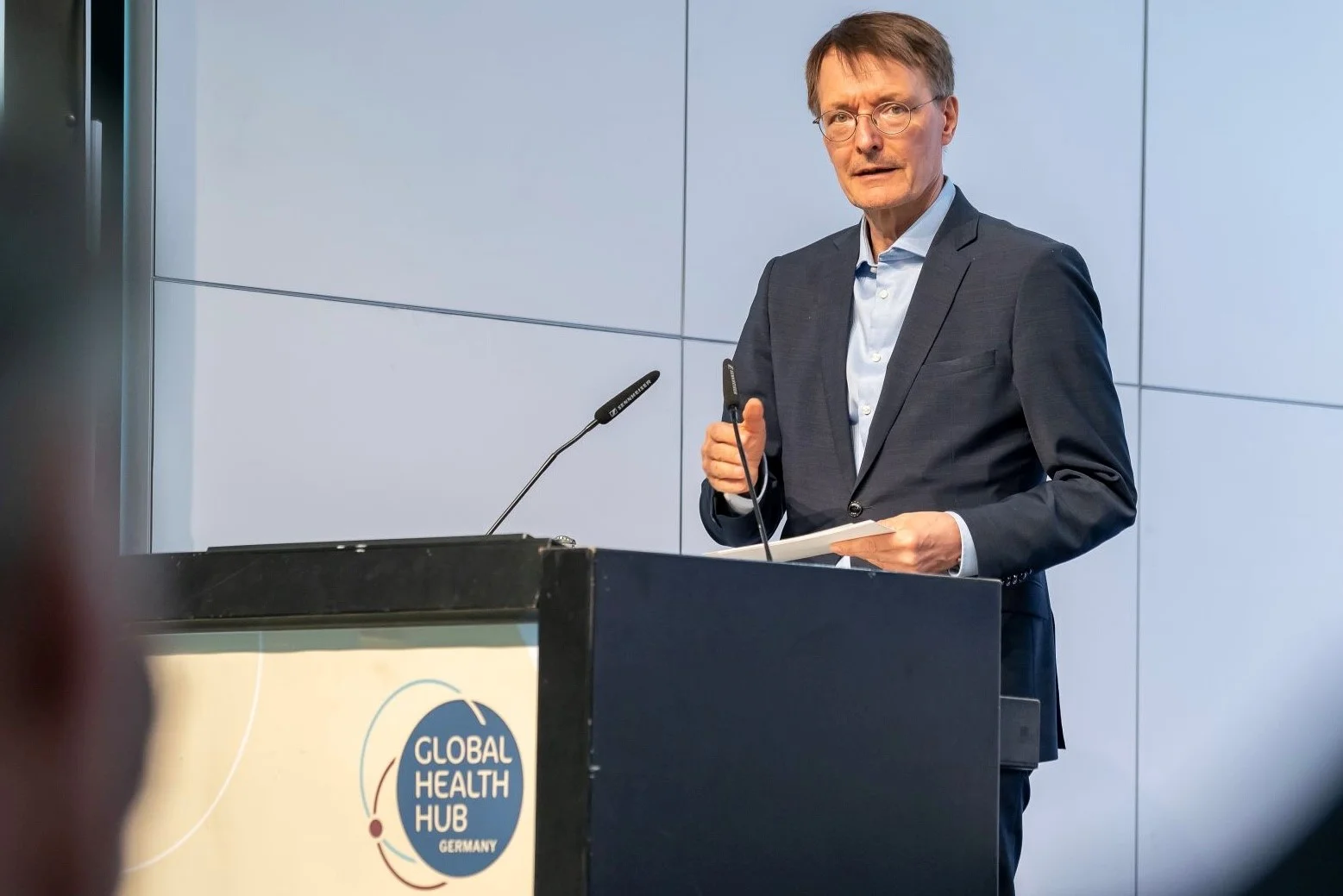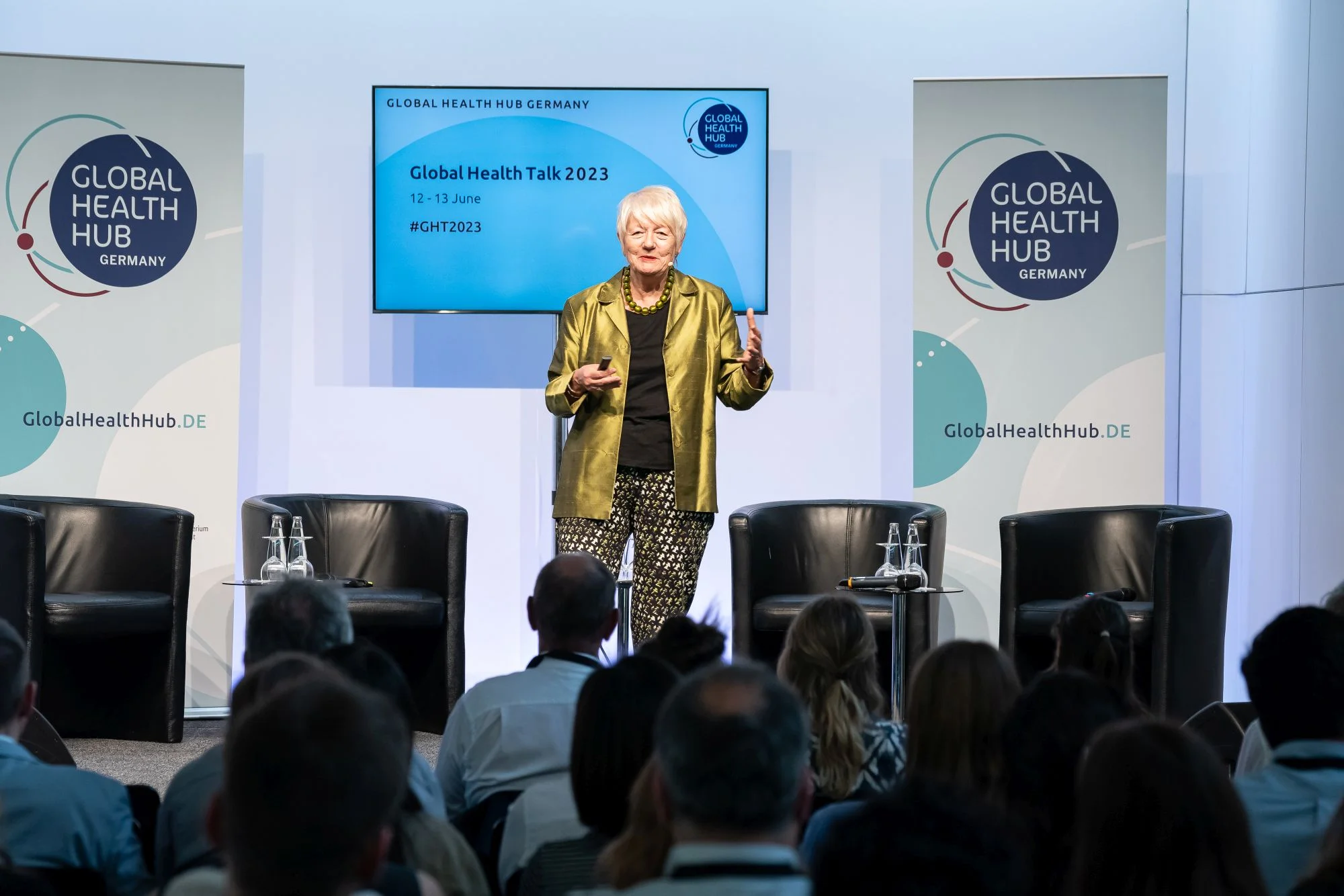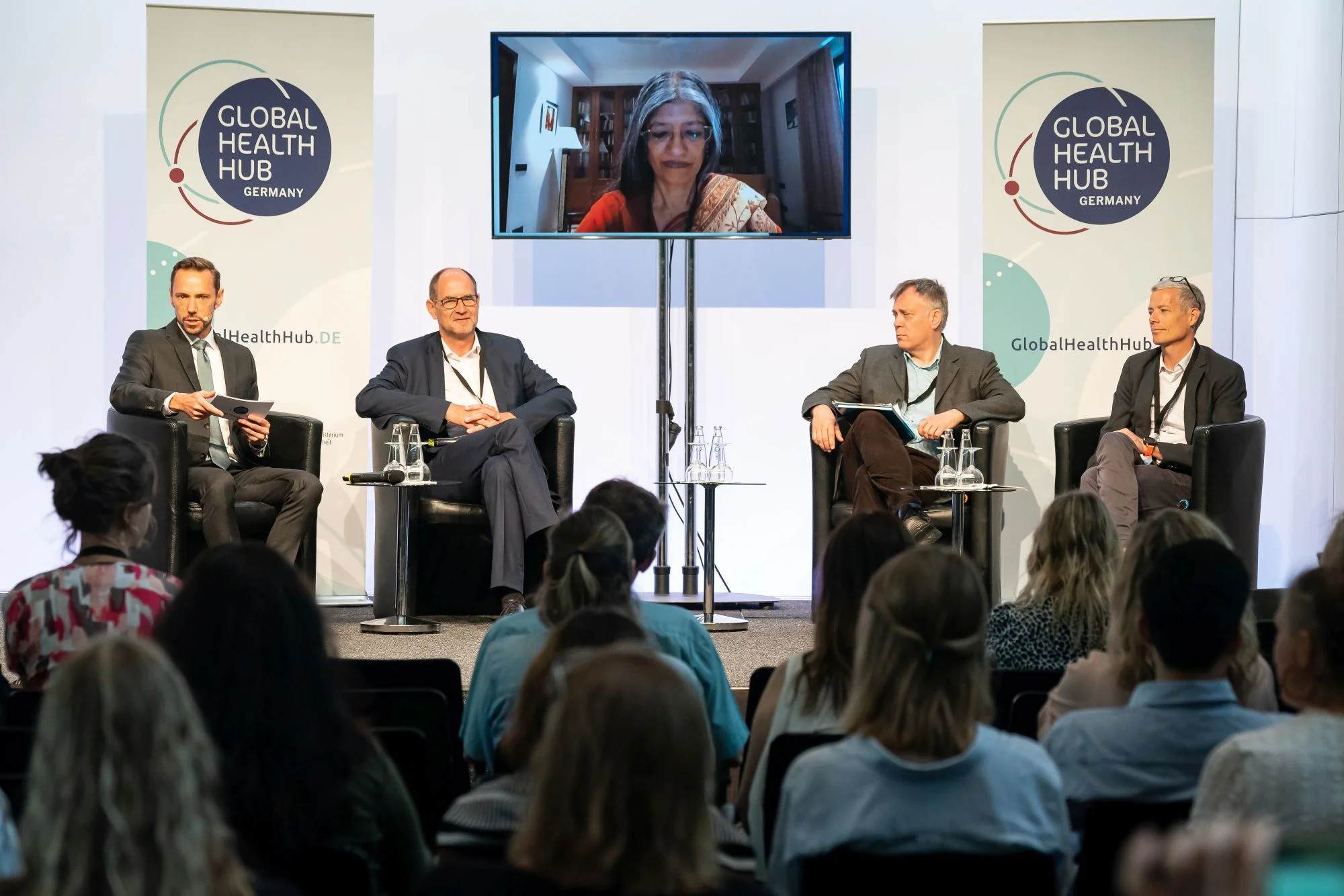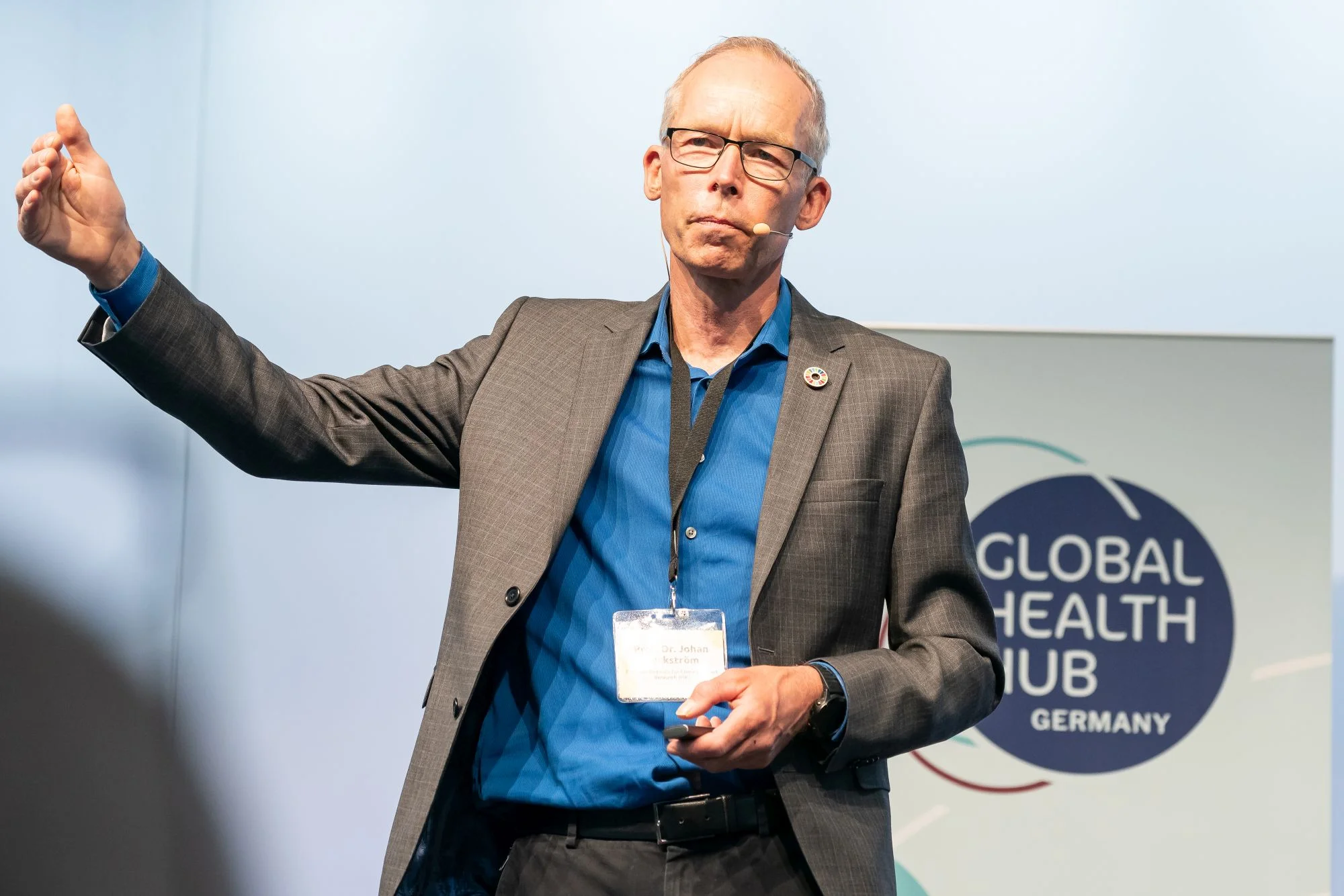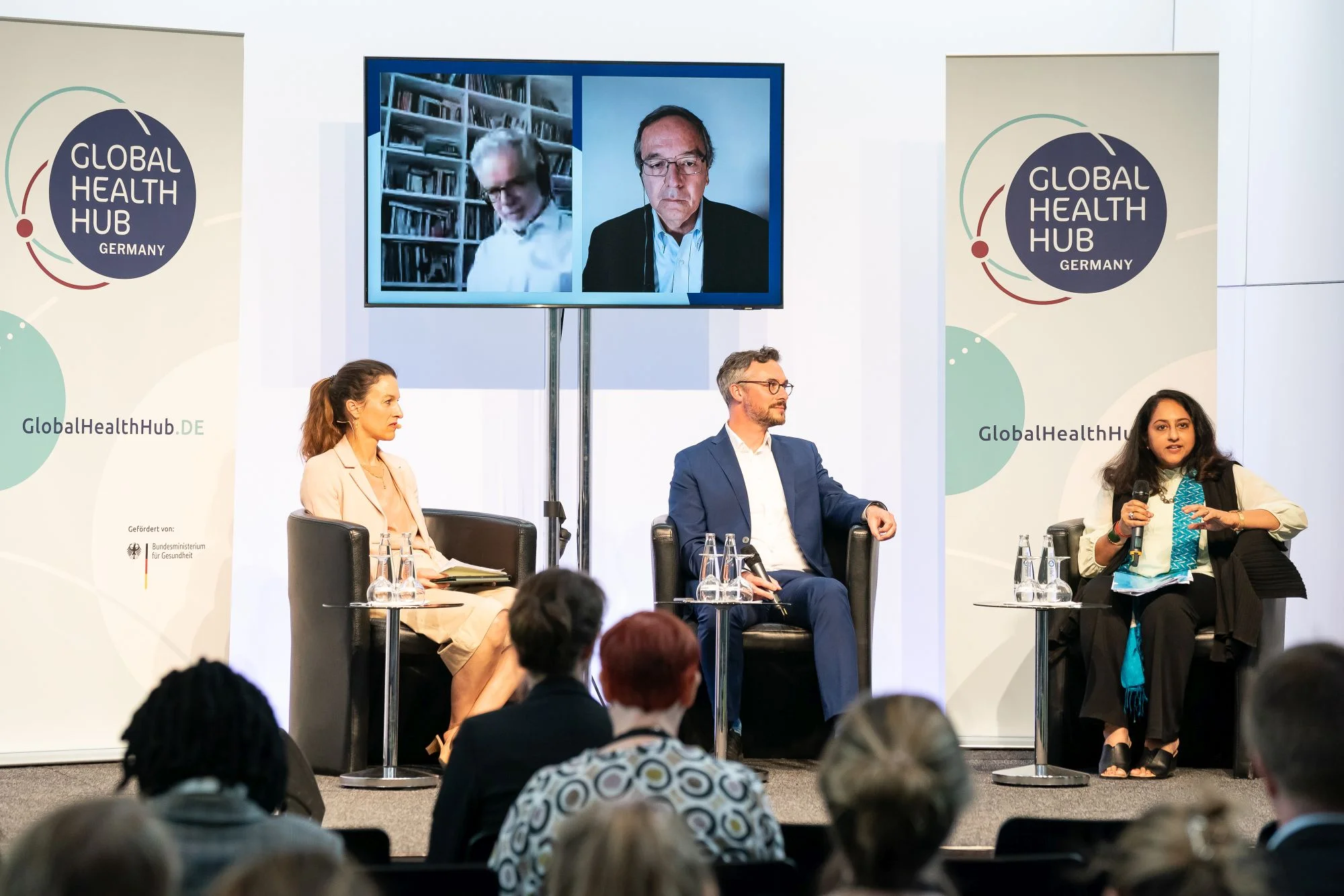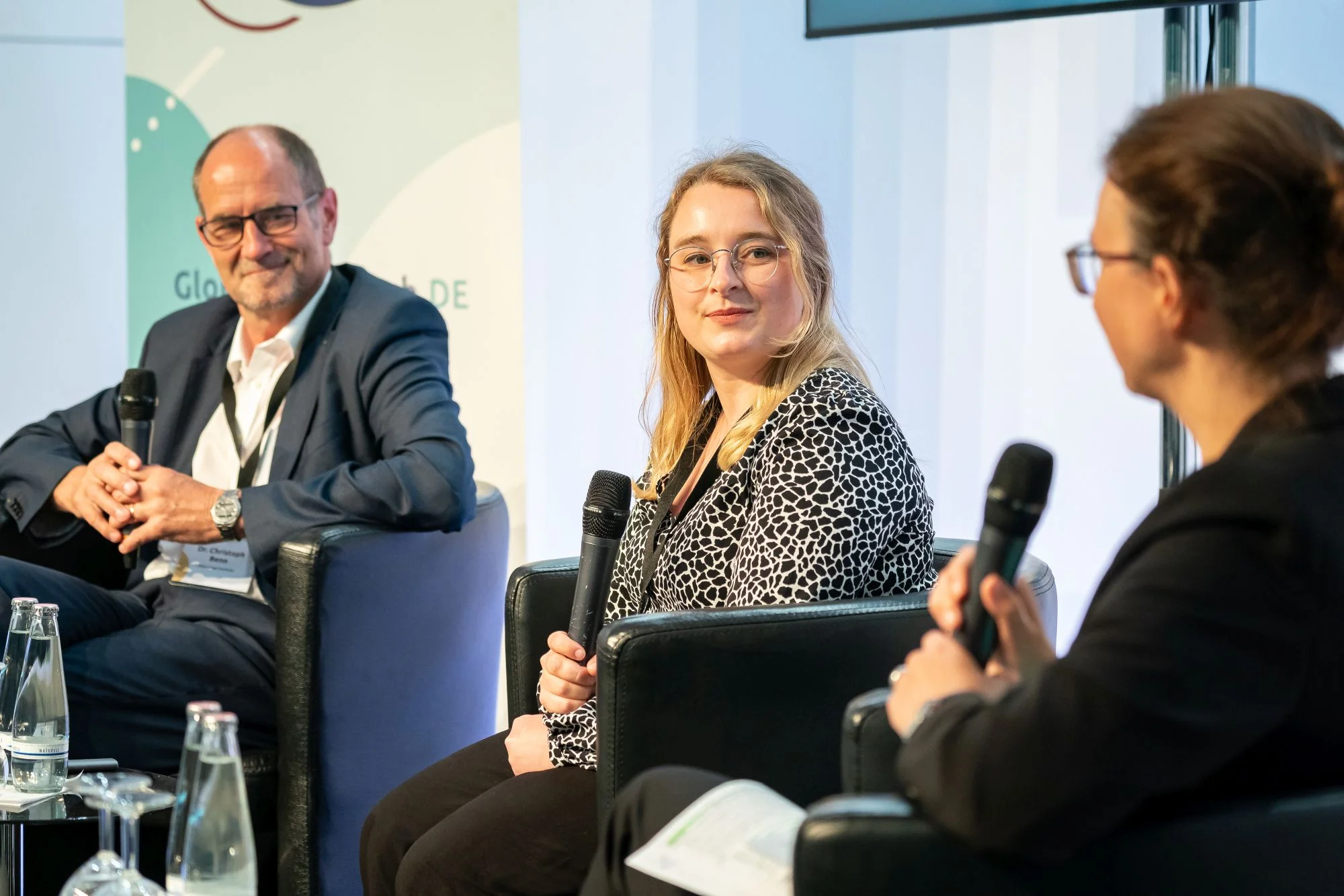Global Health Talk 2023: Discussing “Everything, Everywhere, All at Once”
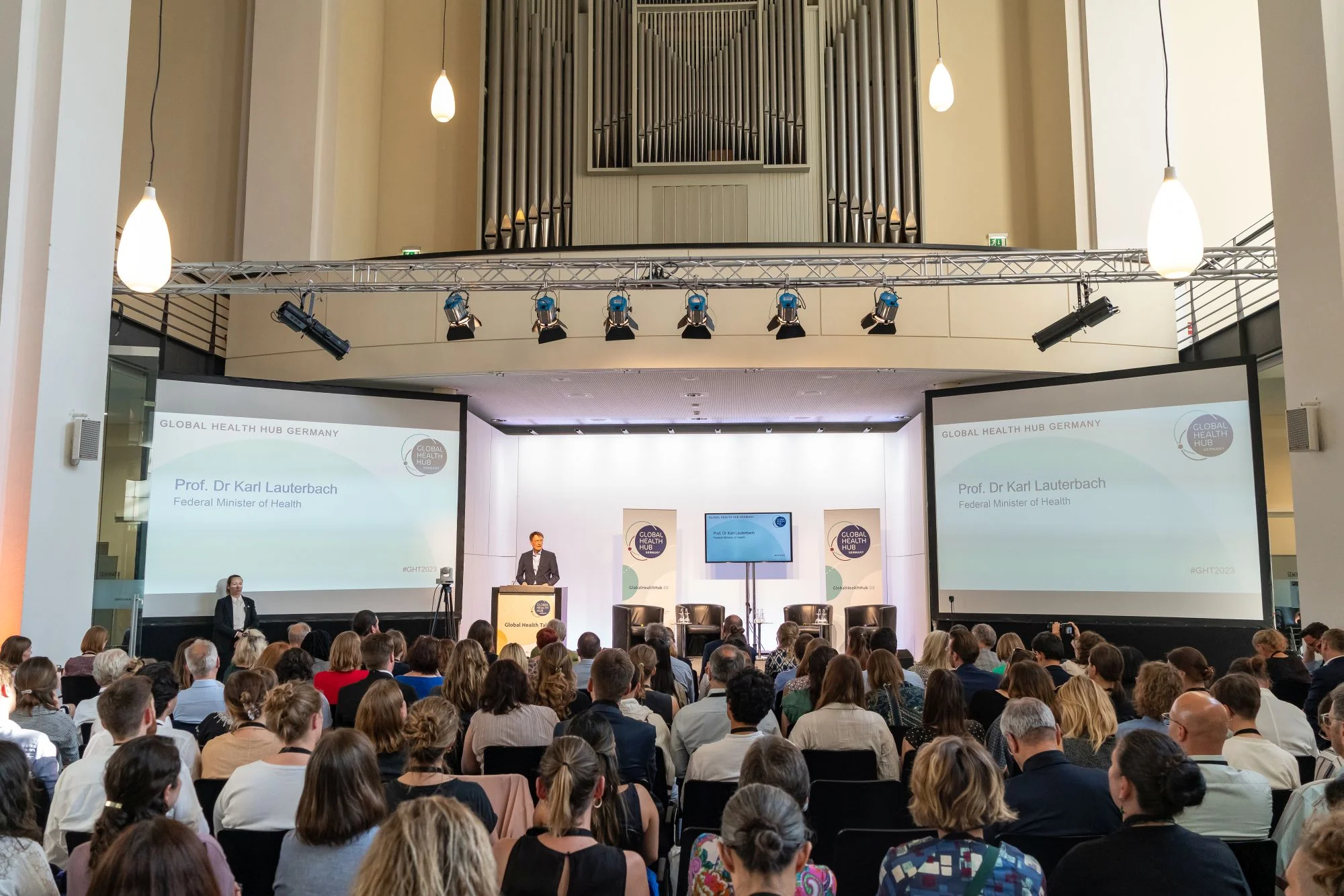
Our annual event Global Health Talk is a space for expert dialogue and networking around current global health topics. This year more than 200 participants came together at the Umweltforum Berlin on 12 and 13 June 2023, joined by over 80 attendees online.
Global Health Hub: bringing experts together
“You are the resource that we policymakers depend on.” With this ringing endorsement, German Health Minister Prof. Dr Karl Lauterbach kicked off the Global Health Talk 2023. It’s a testament to the fact that the Global Health Hub has become the go-to collaboration platform for global health experts in Germany. This year’s conference was to focus on Global Health Financing, with the Hub launching a policy brief on the subject. But it soon became clear that Health Financing could not be discussed on its own, because it is interwoven with many other subjects, including global health processes, past and future pandemic preparedness, climate change, and urban transformation. As Prof. Dr Ilona Kickbusch, founder of the Global Health Centre at the Graduate Institute Geneva, put it, when it comes to addressing global health, we need to do “everything, everywhere, all at once”.
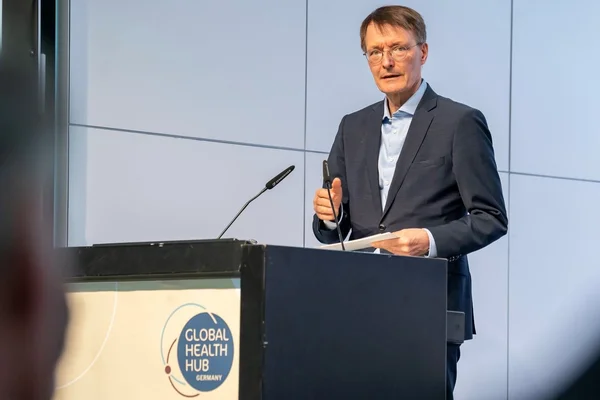
Health For All: advocating collective responsibility
In 2020, WHO Director-General Dr Tedros Adhanom Ghebreyesus invited ten distinguished economists to reassess how the world delivers on health goals. This all-female Council on the Economics of Health for All asked how we can redesign our economy to deliver “Health for All”. The chair of the council, Prof. Dr Mariana Mazzucato, joined the conference online and presented valuable insights from the council’s “Manifesto” and its four pillars: measurement, capacity, financing and innovation. Mazzucato firmly believes that we must be guided by more than GDP and need more collective forms of innovation in order to enable Health for All. Reshaping our economies can help to build healthy societies that are just, inclusive, equitable and sustainable.
Mazzucato’s colleague and council member Prof. Dr Ilona Kickbusch underlined the need for collective intelligence and responsibility. For her, the council’s mission of Health for All really means equity: “For too long, we have not focused on the weakest and most vulnerable people,” she said. "And it’s coming back to bite us now. We saw that in the pandemic.” But to solve the problems of an interconnected world is difficult. From geopolitics, science and technology to bioengineering and artificial intelligence – the world is changing on many levels at the moment. “And that very much includes health, of course,” she stressed. Policy-makers and business leaders are overburdened: they travel from one negotiation to another, working on treaties and declarations, and setting up fund after fund. Kickbusch called on governments to make better use of resources, and advocated for an agile and innovative WHO at the centre of all health negotiations. It should provide a voice for the most vulnerable, defend basic rights, and hold member states to account.
Another group that Kickbusch described as crucial were parliamentarians. So it was apt that Prof. Dr Andrew Ullmann, a German parliamentarian, joined the discussion that followed her presentation. “We underestimate the power of parliamentarians,” he said. “But our power is very clear: we can bring in resolutions, we have power of attorney over budget decisions and division of power.” He pointed towards the ‘Sub-committee on Global Health’ at the German Bundestag, which has doubled in size in just six years and has helped to pass important health policy resolutions. Tina Rudolph, also a parliamentarian and member of the Sub-committee, reported the German Bundestag recently adopted a motion calling, among other things, for mandatory contributions to be raised to a share of 50% of WHO's core budget by 2030/2031, setting an example for other states. Kickbusch reflected on this development: “There was a time when there was no global health community in Germany. But now there is! Something valuable has emerged, that everyone involved can be really proud of!”
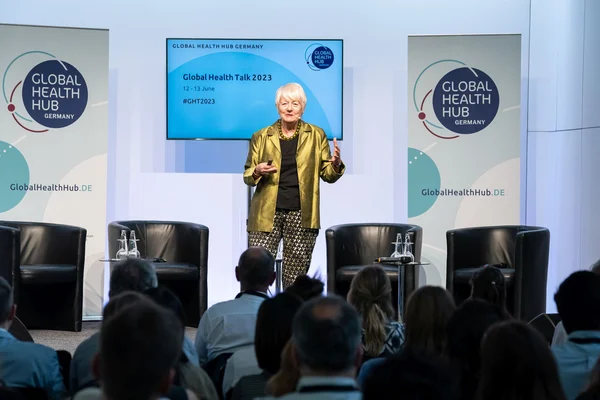
Global Health Financing: launching a forward-looking policy brief
While the first day of the conference had made the case for Health for All, the second day began by looking at how this could be financed. Niels Annen, Parliamentary State Secretary to the Federal Minister for Economic Cooperation and Development (BMZ), emphasised that: “we need to stop considering health financing as a cost. Instead, we need to understand that health financing is indeed an investment in our long-term health and our social and economic well-being.” But what does this mean for a donor country like Germany? Annen shares a few approaches:
- Making better investment decisions and use of available funding and resources;
- Supporting low- and middle income countries to mobilise more domestic resources;
- Supporting to set up strong and functioning social health protection mechanisms;
- Involving the private sector;
- Using debt swaps to converting bilateral debt into targeted investment into public health.
These suggestions provided the starting point for a panel discussion. Prof. Dr Jayati Ghosh, Professor of Economics at the University of Massachusetts Amherst and member of the WHO Council on the Economics of Health for All, emphasised that economies should serve people and planet, not the other way around. “To achieve Health for All and a just society that lives within our planetary boundaries, we need an economy contributing to our social goals,” she maintained. “For that, we need a whole-government-approach, with more than just the health ministry being concerned about health, but also the ministries for finance, for science and technology, for environment.” Björn Kümmel, Deputy Head of Division Global Health at the Federal Ministry of Health (BMG), and Dr Wolfram Morgenroth-Klein, Head of Division Pandemic Prevention and Preparedness, One Health at BMZ, looked at these responsibilities at the national level, while Dr Christoph Benn, Director Global Health Diplomacy at Joep Lange Institute, spoke about advantages of regional investments. For Ghosh, many health-related issues are no longer limited to borders and as such require global ways of financing. She provided a number of specific ideas to achieve and finance Health For All, for example global taxation of multinational corporations to avoid them using tax havens, debt releases or swaps for health investments, and combatting the privatisation of knowledge, as was seen in the development of Covid-19 vaccines. All speakers agreed that the international community was making headway with the collective financing of global health. An example is the World Banks Pandemic Fund, which sees more and more countries establishing a budget line for global public health.
Read an in depth article on this session
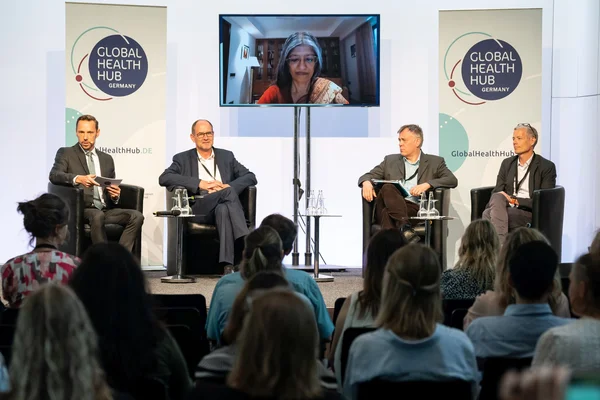
Hot, hotter, hottest: preparing for heat
The hotter our planet, the less healthy we are. Prof. Dr Johan Rockström, Director of the Potsdam Institute for Climate Impact Research (PIK), gave a sobering reminder of the science: the 1.5°C limit, the 16 climate tipping points and the nine planetary boundaries — six of which we are at risk of crossing or have already crossed. For Rockström, the situation is clear: “If we continue ‘business as usual’, many regions on our planet will become uninhabitable. Climate and health are global public goods. We need human prosperity and social inclusion within planetary boundaries. I think that advocating for global health is probably our best vector to succeed in reaching out to decision makers and citizens around the world.”
Katrin Lea Heil, Advisor at Deutsche Gesellschaft für Internationale Zusammenarbeit (GIZ), and Sarah Splettstößer, Head of Political Dialogue of the Global Health Hub Germany, gave the audience a flavour of what this fight might look like by inviting them to take part in a simulation. As the mayor of the fictional city of Grandurbia, they had to decide how to prepare for yet another heatwave. In the following session, they were brought back to Berlin with a discussion on how cities should adapt to and mitigate warming. Prof. Dr Anna-Katharina Hornidge, Director of the German Institute of Development and Sustainability (IDOS), brought an international perspective to the table, calling for shared but differentiated responsibilities. According to Hornidge, the G7 countries don’t just bear more responsibility, but also have more opportunities for coping, adapting and mitigating. Nathalie Nidens, Research Associate, KLUG – Deutsche Allianz Klimawandel und Gesundheit e.V., sees a necessity for short-term mitigation actions and awareness raising campaigns, while Dr Peter Tinnemann, Director of the Public Health Authority in Frankfurt am Main, recommends to collect and harness more data.
Read an in depth article on the climate sessions
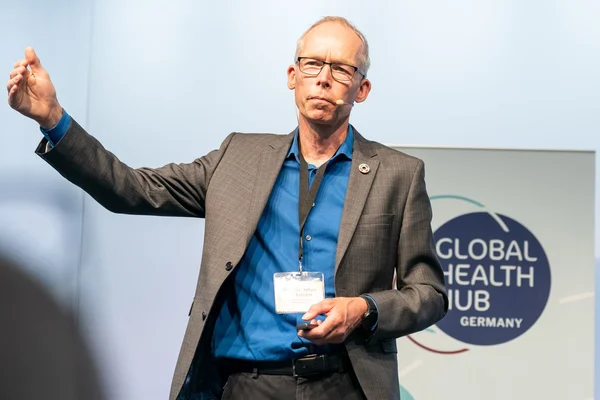
Urban health: opening a window of opportunity
In the 21st century, human health is inseparable from urban health. Around the world, most people now live in cities. That has advantages and disadvantages, depending on your socioeconomic status, gender and age. Cities offer jobs, networks and health care, but can also be crowded, noisy and polluted. Gil Penalosa, Founder of 8 80 Cities, has advised over 350 cities around the world and has seen what goes wrong: “Much of what we’ve done in cities is terrible. They are bad for mental health, climate change and pollution. We need to change this in the coming years, and we already know what we have to do – it’s not that complex! But we’re not getting it right. We urgently need to move from talking to doing. Because whether we like it or not, we will have more cities. And if we do more of the same, the results will be tragic.”
Dr Carlos Dora, President of International Society for Urban Health (ISUH), agreed that there is no lack of good ideas or understanding about what should be done for urban health. For him, the biggest barrier for healthy cities is linking the different sectors, and bringing stakeholders together to make the changes needed. Penalosa agreed that everyone needed to be involved: academics, the public and private sector – each actor needs to take care of its own piece of the puzzle as part of a common vision. Dr Priya Balasubramaniam Kakkar, Senior Public Health Scientist at Public Health Foundation of India, had a few suggestions for decision-makers as to how urban health could be achieved:
- Leverage the power of partnerships. People need to be consulted when it comes to urban decisions.
- Have a clear public health approach in cities. Investigate how do people sleep, breathe, deal with their mental health.
- Use digital solutions.
And what about the Global Health Hub’s contribution to urban health? Dr Carsten Butsch, Research Associate at the University of Bonn, announced a series of webinars, in cooperation with the Hub Community on Global Urban Health, which will present good practices from around the world. In addition, more research will be compiled and urban diagnosis toolkits made available.
Read the latest policy brief of our Urban Health Community!
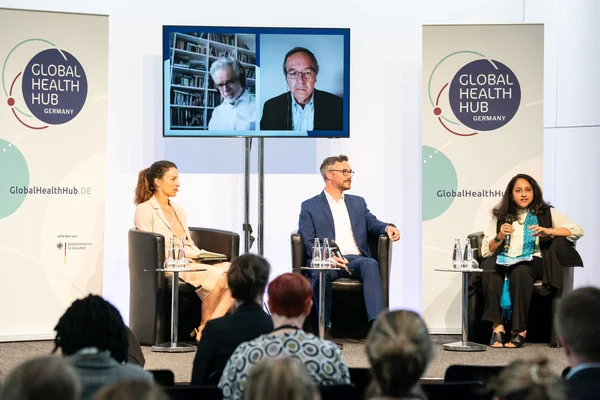
What’s next?
At the end of two enlightening days, the organisers saw a common thread: the health sector doesn’t exist in a vacuum; rather, it is inextricably linked to many other sectors, including climate, finance and urban planning. For Sophie Gepp and Dr Christoph Benn, co-chairs of the Hub’s steering committee, this means a growing list of activities at the Hub:
- More catalyst dialogues and events,
- Focus on digital technologies,
- Contribution to global health strategies, for example in upcoming meetings in New York.
And all of this will be driven by the collaborative spirit of the Hub’s communities!
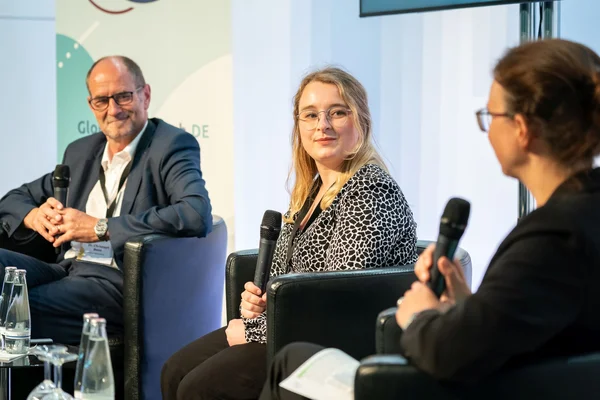
Related Articles
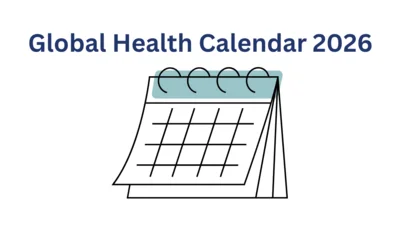
![[Translate to English:] ©GHHG [Translate to English:] ©GHHG](/fileadmin/_processed_/c/9/csm_GHHG_Team_37885962d7.webp)
